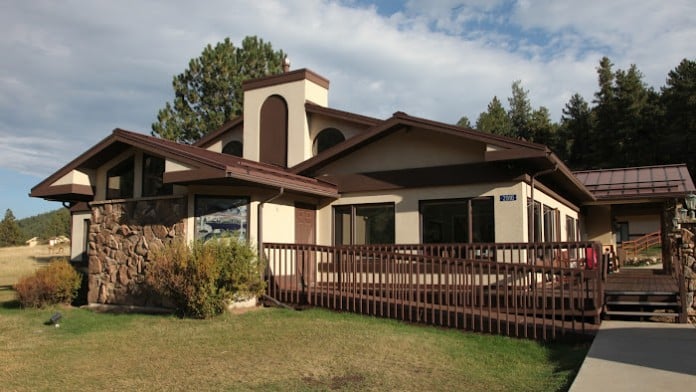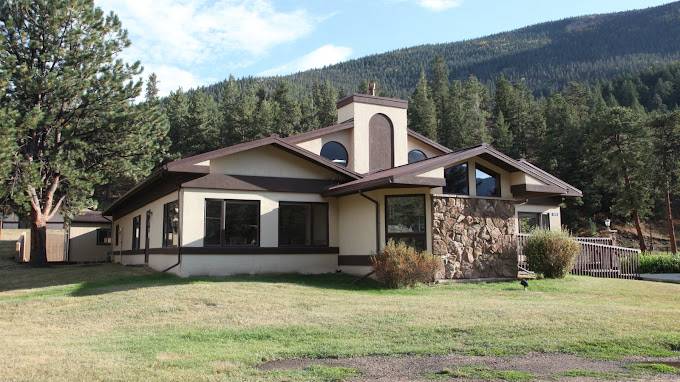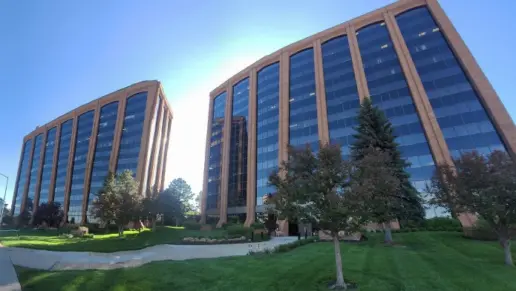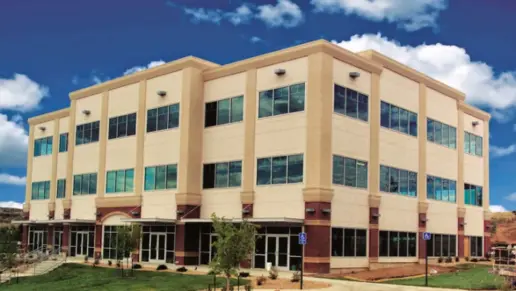Best treatment center I’ve been to!!
About Harmony Foundation
Harmony Foundation is a residential alcohol and drug treatment center for adolescents and adults. It’s nestled in the Rocky Mountains near Estes Park, Colorado. They specialize in detoxification, residential treatment, outpatient programming, and aftercare services. Specialized support is available for the LGBTQ+ community, clients addicted to opiates, and those with co-occurring addictions and mental health disorders.
Their detox provides clients with comprehensive withdrawal management support as they eliminate harmful and addictive substances from their bodies. A team of multi-disciplinary clinicians works closely with you to assess your needs and determine their appropriate length of stay. Most clients remain in the program for three to 10 days. In addition to personalized assessments, providers also deliver other detox services, including mental health screenings, group counseling sessions, and case management. Telemedicine services are available.
Their residential treatment program includes gender-specific tracks that allow you to continue their recovery in safe, supervised environments. Available residential services include individual and group counseling, recovery-focused education, and peer-based support groups. If you relapse within one year of leaving residential treatment, you may participate in their short term residential program called ReCommitment to Recovery.
As you progress in their recovery journey, you’ll transition into outpatient programs. They have several outpatient tracks that vary in intensity and duration. These services allow them to continue their treatment while living at home and attending to personal and professional duties. This facility utilizes telemedicine to conduct intensive treatment virtually. You can use their mobile app to gain 24/7 access to an array of resources including weekly milestone checkers, educational videos, spiritual meditations, and messages from alumni. As they work through the app, your skills advance week by week. Aftercare services include involvement in their alumni association, which connects you to ongoing opportunities for peer connection, community involvement, and local resources for long-term recovery support.
Harmony Foundation accepts most forms of commercial insurance. Confirm your coverage with your individual provider as out of network benefits can vary. They’re also accredited by the Commission on Accreditation of Rehabilitation Facilities (CARF).
Facility Overview
Latest Reviews
Rehab Score
Gallery






Location
Accepted Insurance

Other Forms of Payment
Private insurance refers to any kind of healthcare coverage that isn't from the state or federal government. This includes individual and family plans offered by an employer or purchased from the Insurance Marketplace. Every plan will have different requirements and out of pocket costs so be sure to get the full details before you start treatment.
Self-pay involves paying for treatment out of your own pocket. You can use savings or credit, get a personal loan, or receive help from family and friends to fund your treatment. If you don't have insurance or your insurance plan doesn't cover a specific program, self-pay can help ensure you still get the care you need.
Addiction Treatments
Levels of Care
Treatments
The goal of treatment for alcoholism is abstinence. Those with poor social support, poor motivation, or psychiatric disorders tend to relapse within a few years of treatment. For these people, success is measured by longer periods of abstinence, reduced use of alcohol, better health, and improved social functioning. Recovery and Maintenance are usually based on 12 step programs and AA meetings.
Professional services are often necessary to recover from addiction. Drug rehab in Colorado provides the expert services needed to address the complex issues of addiction and help individuals start their recovery journey.
Many of those suffering from addiction also suffer from mental or emotional illnesses like schizophrenia, bipolar disorder, depression, or anxiety disorders. Rehab and other substance abuse facilities treating those with a dual diagnosis or co-occurring disorder administer psychiatric treatment to address the person's mental health issue in addition to drug and alcohol rehabilitation.
A combined mental health and substance abuse rehab has the staff and resources available to handle individuals with both mental health and substance abuse issues. It can be challenging to determine where a specific symptom stems from (a mental health issue or an issue related to substance abuse), so mental health and substance abuse professionals are helpful in detangling symptoms and keeping treatment on track.
Opioid rehabs specialize in supporting those recovering from opioid addiction. They treat those suffering from addiction to illegal opioids like heroin, as well as prescription drugs like oxycodone. These centers typically combine both physical as well as mental and emotional support to help stop addiction. Physical support often includes medical detox and subsequent medical support (including medication), and mental support includes in-depth therapy to address the underlying causes of addiction.
Programs



Clinical Services
Cognitive Behavioral Therapy (CBT) is a therapy modality that focuses on the relationship between one's thoughts, feelings, and behaviors. It is used to establish and allow for healthy responses to thoughts and feelings (instead of unhealthy responses, like using drugs or alcohol). CBT has been proven effective for recovering addicts of all kinds, and is used to strengthen a patient's own self-awareness and ability to self-regulate. CBT allows individuals to monitor their own emotional state, become more adept at communicating with others, and manage stress without needing to engage in substance abuse.
Dialectical Behavior Therapy (DBT) is a modified form of Cognitive Behavioral Therapy (CBT), a treatment designed to help people understand and ultimately affect the relationship between their thoughts, feelings, and behaviors. DBT is often used for individuals who struggle with self-harm behaviors, such as self-mutilation (cutting) and suicidal thoughts, urges, or attempts. It has been proven clinically effective for those who struggle with out-of-control emotions and mental health illnesses like Borderline Personality Disorder.
Group therapy is any therapeutic work that happens in a group (not one-on-one). There are a number of different group therapy modalities, including support groups, experiential therapy, psycho-education, and more. Group therapy involves treatment as well as processing interaction between group members.
In individual therapy, a patient meets one-on-one with a trained psychologist or counselor. Therapy is a pivotal part of effective substance abuse treatment, as it often covers root causes of addiction, including challenges faced by the patient in their social, family, and work/school life.
Therapists who employ motivational interview techniques seek to draw out the client's ideas about change and allow them to draw their own conclusions about the need for change. This method is often effective for clients who feel unsure about their ability to change or the need for change.
During trauma therapy, you explore the impact that a traumatic event has had on your life. Your therapist can help you develop strategies to manage the emotional and physical symptoms while improving emotional regulation. This improves your overall quality of life.
Research clearly demonstrates that recovery is far more successful and sustainable when loved ones like family members participate in rehab and substance abuse treatment. Genetic factors may be at play when it comes to drug and alcohol addiction, as well as mental health issues. Family dynamics often play a critical role in addiction triggers, and if properly educated, family members can be a strong source of support when it comes to rehabilitation. Harmony’s Family Addiction Treatment Program offers renewed hope for all those with the addiction and those affected by it. Additional help is sometimes needed to continue the work that begins at Harmony such as individual, couples, or family counseling. Their qualified staff is always available to assist clients and family in finding additional support services.
Amenities
-
Residential Setting
-
Hiking
-
Mountain Views
Staff & Accreditations
Staff

CEO

COO

Acting Medical Director

Manager of Safety & Compliance
Accreditations

The Commission on Accreditation of Rehabilitation Facilities (CARF) is a non-profit organization that specifically accredits rehab organizations. Founded in 1966, CARF's, mission is to help service providers like rehab facilities maintain high standards of care.
CARF Accreditation: Yes
Accreditation Number: 32408

State Licenses are permits issued by government agencies that allow rehab organizations to conduct business legally within a certain geographical area. Typically, the kind of program a rehab facility offers, along with its physical location, determines which licenses are required to operate legally.
State License: Colorado

The National Association of Addiction Treatment Providers (NAATP) is a professional association that represents organizations in the field of addiction services. Founded in 1978, NAATP's mission is to advance addiction services and ensure that high-quality addiction treatment is available and accessible.
NAATP Member: Yes
Member ID: 229
Contact Information
1600 Fish Hatchery Road
Estes Park, CO 80517












